What Is the Pescatarian Diet?
The pescatarian diet is a dietary plan that incorporates seafood and fish, but excludes the consumption of meat and poultry. It is a flexible diet that allows for a wide range of foods to be consumed, as long as meat and poultry are not included.
The pescatarian diet is an intriguing and diverse dietary plan that gracefully integrates the rich flavors of seafood and fish into everyday meals, while consciously excluding the consumption of meat and poultry. It's a captivating culinary journey, an exploration of the treasures of the sea, from the delicate sweetness of scallops to the hearty, robust flavors of salmon. This diet is designed with flexibility in mind, embracing a wide array of foods and flavors to ensure that every meal is both nutritious and delicious. It allows individuals to delve into a variety of fruits, vegetables, whole grains, and legumes, enhancing the dining experience with their vibrant colors and diverse textures. It's a world of gastronomic possibilities, a chance to experiment with unique and exciting recipes that will make every meal a culinary adventure.

However, the core principle of a pescarian diet remains the abstention from meat and poultry. It's a conscious and informed decision, a testament to the individual's commitment to a more sustainable and ethical way of living.
This dietary choice encourages the consumption of omega-3 rich seafood, which plays a crucial role in promoting heart health, and at the same time, it significantly reduces the environmental impact associated with meat-based diets. It's a way of eating that not only benefits the individual but also contributes to the well-being of the planet. In essence, the pescatarian diet is more than just a dietary plan; it's a lifestyle choice, a commitment to health, sustainability, and gastronomic diversity. So embark on this journey, immerse yourself in the world of pescatarian cuisine, and discover the countless flavors, textures, and health benefits it has to offer.
Foods you can eat on the pescatarian diet
The pescatarian diet is rich in seafood such as fish, shellfish, and other forms of marine life. Moreover, it encourages the consumption of fruits, vegetables, whole grains, legumes, nuts, and seeds.
Pescatarians also consume eggs and dairy products, although some choose to exclude these items for a more plant-focused diet. Delving deeper into the pescatarian lifestyle, it becomes evident that it is an oceanic banquet, teeming with a diverse range of seafood including but not limited to, succulent fish, mouthwatering shellfish, and a variety of intriguing marine life. This diet provides a magnificent gateway to explore a myriad of flavors from under the sea, making each meal a culinary journey that tantalizes the taste buds in a way that few other diets can match. But the pescatarian diet is not limited to just seafood. It also emphasizes the importance of a rainbow of fruits and vegetables, offering a cornucopia of nutrients and antioxidants that enhance overall health and wellbeing.
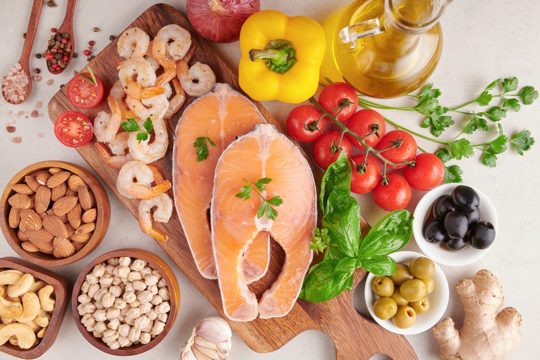
Whole grains, legumes, nuts, and seeds are also integral parts of this diet, which not only add a delightful crunch and texture to meals but also contribute to a feeling of fullness, helping to curb unnecessary snacking. Dairy products and eggs, both excellent sources of protein, can also be included in the pescatarian diet.
However, it is interesting to note that some pescatarians choose to exclude these items, leaning more towards a plant-focused diet. This is a testament to the flexibility of the pescatarian diet, allowing individuals to tailor their food choices according to personal preferences and nutritional needs. So, whether you are a seafood lover or someone looking to incorporate more plant-based foods into your diet, the pescatarian lifestyle can be a delicious and nutritious choice.
Foods you don’t eat
While the pescatarian diet is inclusive of a variety of foods, it strictly excludes all forms of meat and poultry. This includes beef, chicken, pork, and other types of meat, as well as processed meats such as sausages and bacon.
Delving into the world of dietary options, the pescatarian diet presents itself as a fascinating choice. This unique eating plan is not only compelling for its inclusivity, but also for its striking exclusivity. It's a diet that celebrates a rich array of foods, embracing the diversity of fruits, vegetables, grains, and particularly, the bounty of the sea. Each meal is a symphony of flavors, from the sweet tang of fresh fruits to the hearty wholesomeness of whole grains, punctuated by the delicate flavor of seafood that forms the cornerstone of this diet. Yet, while it paints a colorful palette of food choices, the pescatarian diet also draws a firm line in the sand. It stands resolute in its exclusion of all forms of meat and poultry. This includes the likes of beef, chicken, and pork, which are staples in many other diets.
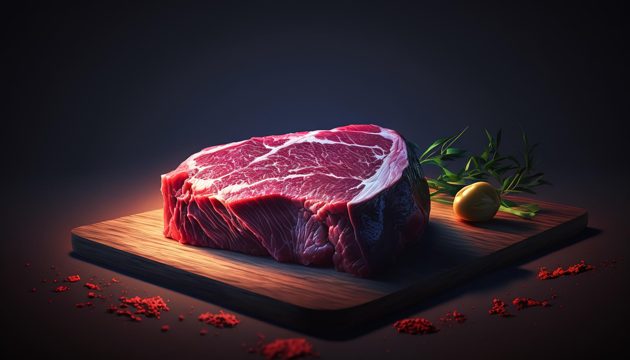
It also extends to other types of meat, such as lamb or venison, and even to processed meats. Those breakfast favorites, from sizzling sausages to crispy bacon, also fall into the category of forbidden foods for those following this diet.
But this strict exclusion shouldn't be seen as a limitation. Instead, it's a testament to the diet's commitment to health, sustainability, and ethical eating. It's a bold dietary choice that asks us to reevaluate our relationship with food, to consider the impact of our choices on our bodies and our world. The pescatarian diet isn't just about what foods to eat or avoid; it's a lifestyle choice that harmonizes the principles of good health, eco-consciousness, and ethical considerations. So, whether you're drawn to its health benefits, its sustainable ethos, or its animal welfare considerations, the pescarian diet presents a compelling option worth exploring.
Health benefits of the pescatarian diet
The pescatarian diet offers numerous health benefits. First, the high intake of fish and seafood provides a rich source of Omega-3 fatty acids, which are known to benefit heart health.
Also, pescatarians often consume less saturated fat and cholesterol compared to those on a meat-based diet. The abundance of fruits, vegetables, and whole grains further contributes to a nutrient-rich diet that promotes overall health. The pescatarian diet, a dynamic blend of vegetarianism and seafood consumption, offers an array of health benefits that are too significant to ignore. The core of this diet, the high intake of fish and seafood, acts as a goldmine for Omega-3 fatty acids. These essential nutrients are known to significantly boost heart health by reducing inflammation, lowering blood pressure, and decreasing irregular heartbeats. It's a heart-friendly diet that could potentially ward off cardiovascular diseases, which are the leading cause of global deaths today. Moreover, pescatarians often intake significantly less saturated fat and cholesterol compared to their counterparts on a meat-based diet.

This is because their primary source of protein comes from the sea, which is naturally lower in these harmful substances. By reducing their consumption of red and processed meats, which are often high in these unhealthy components, pescatarians actively lower their risk of chronic diseases such as heart disease and type 2 diabetes.
But that's not all. The pescatarian diet also emphasizes the consumption of a bounty of fruits, vegetables, and whole grains. This not only diversifies their plate but also further contributes to a nutrient-rich diet that promotes overall health. These nutrient-dense foods are packed with dietary fiber, antioxidants, and a plethora of vitamins and minerals that can ward off diseases and enhance overall wellbeing. From improving digestion to boosting immunity and from enhancing skin health to promoting weight loss, the benefits seem endless. In essence, the pescatarian diet isn't just a diet; it's a holistic lifestyle shift that promotes healthier, more conscious eating habits.
Potential pitfalls of going pescatarian
While the pescatarian diet has its benefits, there are also potential pitfalls to consider. One such pitfall is the possibility of consuming too many processed foods.
While fish and seafood are encouraged, its important to opt for fresh options rather than heavily processed ones. Diving deeper into the pescatarian diet, it's crucial to acknowledge the numerous health benefits it offers, such as reducing the risk of heart diseases, improving brain function, and even aiding in weight loss. However, like any dietary plan, it's not without its challenges and potential pitfalls that individuals must be vigilant about. One such pitfall, which is quite prominent, is the propensity to consume an excess of processed foods. In the pescatarian diet, while the consumption of fish and seafood is given a green light, it's not a carte blanche to indulge in any form of aquatic fare.
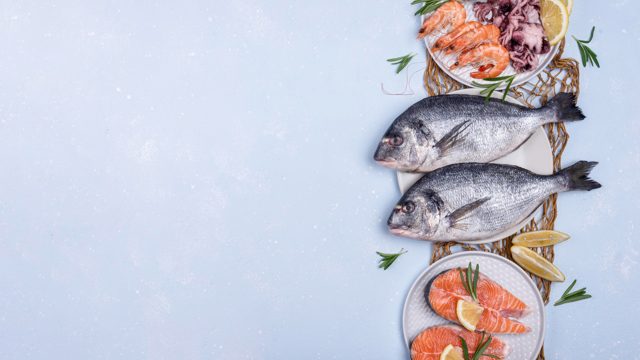
It's essential to exercise due diligence in the selection process, opting for fresh, wholesome choices rather than those that are laden with preservatives and artificial flavorings. Heavily processed options, while they may seem convenient and palatable, often contain high levels of sodium, unhealthy fats, and hidden sugars, which can counteract the health benefits of this diet.
On the journey of maintaining a pescatarian lifestyle, it's important to remember that the quality of the food you consume is just as vital as the type. By focusing on fresh, natural, and minimally processed fish and seafood, you can truly harness the potential health benefits of the pescarian diet while minimizing the risks. So, let's make the conscious choice to prioritize our health, and navigate the potential pitfalls with an informed and discerning approach.
Too many processed foods
Processed fish and seafood can often contain unhealthy levels of sodium and added sugars. They can also incorporate unhealthy fats and other artificial ingredients.
Thus, its crucial to read food labels and choose unprocessed or minimally processed options when following the pescatarian diet. Processed fish and seafood, while convenient and often tempting, can frequently harbor unhealthy levels of sodium and added sugars, which are notorious for thwarting well-intentioned diet plans. In addition to these hidden threats, these processed foods can also introduce unhealthy fats and a slew of other artificial ingredients into your system. These ingredients can not only impact your overall health negatively but can also stealthily add unwanted calories to your meals. Thus, it becomes absolutely crucial to be vigilant and proactive when it comes to reading food labels.
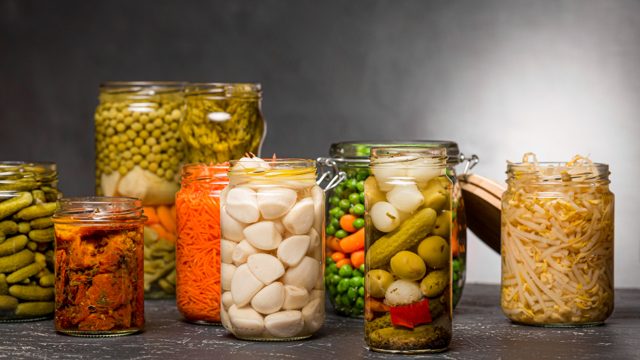
Being discerning about what you put in your shopping cart can make a significant difference in your health journey. Look for unprocessed or minimally processed options, which are usually more nutrient-dense and free from the clutches of excessive additives and preservatives.
When following a pescatarian diet, these choices become even more essential. After all, the pescatarian diet is more than just a dietary choice; it's a commitment towards healthier living. It's about embracing the bounty of the sea in its purest form, without letting harmful elements overshadow the array of benefits it has to offer. So, next time you find yourself in the seafood aisle, remember to scrutinize those labels and make choices that align with your commitment to a healthier you.
Fish high in mercury or contaminants
Another concern with the pescatarian diet is the potential for consuming fish high in mercury or other contaminants. Certain types of fish are known to contain higher levels of these harmful substances.
Therefore, its important to choose a variety of seafood and avoid consuming excessive amounts of fish known to be high in mercury, such as swordfish and king mackerel. Delving deeper into the implications of a pescatarian diet, it becomes crucial to consider the risk of ingesting fish that are significantly high in mercury or other potentially hazardous contaminants. There are certain species of fish, which, due to their size, diet, or habitats, are known to accumulate higher levels of these detrimental substances within their bodies. This is often a consequence of industrial pollution and the unfortunate reality of our modern world, which has a cascading effect on our food chain. The key to a healthy pescatarian diet lies not only in the quantity but also the quality and diversity of the seafood consumed. It's essential to remember that not all fish are created equal.
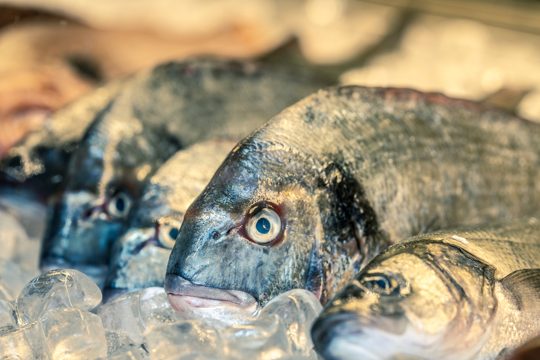
Prioritizing variety in your diet can help mitigate the risk of overexposure to these harmful elements. Simultaneously, it can serve to ensure that your diet remains balanced and nutritionally diverse.
By including a range of seafood like prawns, scallops, salmon, or tilapia, you can strike a healthier balance and ensure your body gets all the necessary nutrients. Moreover, it's crucial to take note of the types of fish that are notoriously high in mercury, such as swordfish and king mackerel. These should be consumed sparingly or, in some cases, avoided altogether. Steer clear of consuming these species excessively, as mercury can build up in your body over time and potentially cause health problems. By making informed choices, you can enjoy the benefits of a pescatarian diet while reducing the potential risks associated with mercury and other contaminants.
Possible nutrient deficiencies
Although the pescatarian diet is rich in many nutrients, there is a risk of certain nutrient deficiencies, especially if the diet is not well-planned. These may include Vitamin B12, Iron, and Zinc, which are typically obtained from meat.
To prevent deficiencies, its recommended to consume a diverse range of foods and consider fortified foods or supplements if necessary. While the pescatarian diet is indeed a treasure trove of essential nutrients, providing an abundance of heart-healthy omega-3 fatty acids from fish, lean protein, and a variety of vitamins and minerals from plant-based foods, there is a potential pitfall that one must be wary of - the risk of certain nutrient deficiencies. This risk becomes more pronounced if the diet is not meticulously planned and balanced. The nutrients that are most commonly at risk include Vitamin B12, Iron, and Zinc. Generally, these nutrients are effortlessly obtained from meat-based diets, but they can become scarce in a diet that excludes meat. Vitamin B12, for instance, is crucial for nerve function and the production of DNA and red blood cells. Iron is an irreplaceable component of hemoglobin, a protein that transports oxygen in our blood, and Zinc plays a pivotal role in immune function and wound healing. However, these deficiencies are not insurmountable.

To prevent them, it's paramount to include a diverse range of foods in your meal planning. Foods such as shellfish, eggs, and dairy can help supplement Vitamin B12.
Iron can be found in legumes, leafy green vegetables, and fortified cereals, while Zinc is abundant in dairy and whole grains. In addition to this, fortified foods - foods with nutrients added to them - can also be considered a viable option. Another alternative to consider, especially if dietary adjustments aren't enough, is the use of supplements. These can help fill any nutritional gaps and ensure that your body gets all the nutrients it needs to function optimally. Remember, while the pescatarian diet offers numerous health benefits, it's essential to plan and balance your meals to avoid potential nutrient deficiencies. With careful planning and a bit of knowledge, you can enjoy a pescatarian diet that is not only delicious but also nutritionally sound.
Pescatarian vs. Mediterranean diet: Which is healthier?
Both the pescatarian and Mediterranean diets are viewed as healthy dietary patterns. The Mediterranean diet, similar to the pescatarian diet, emphasizes fish and seafood, fruits, vegetables, whole grains, and healthy fats, but it also includes moderate amounts of poultry and dairy.
The choice between the two would depend on individual preferences and dietary restrictions. Both the pescatarian and Mediterranean diets are highly recognized for their potential health benefits, each championing a unique combination of foods that could have a positive impact on your overall well-being. At the heart of both diets is a shared emphasis on fish and seafood consumption, a source of lean protein and omega-3 fatty acids, which are known to support heart health. Additionally, these diets both promote the inclusion of an abundance of colorful fruits and vegetables, a veritable treasure trove of vitamins, minerals, and antioxidants. Whole grains, another common component, provide essential fibers and contribute to a feeling of fullness, thus helping to manage weight.

What's more, these dietary patterns endorse the consumption of healthy fats, such as olive oil and nuts, which are known to support brain health and provide essential fatty acids. However, where these two diets diverge is in the inclusion of poultry and dairy products.
The Mediterranean diet, while still focusing on plant-based foods and seafood, does allow for moderate amounts of poultry and dairy, offering a little more flexibility for those who can't imagine a meal without these items. Therefore, the choice between a pescatarian and a Mediterranean diet often boils down to individual preferences, dietary restrictions, and lifestyle considerations. Some may find the exclusion of meat in the pescatarian diet more appealing, while others may appreciate the wider range of protein choices in the Mediterranean diet. Either way, both dietary patterns offer a roadmap to a healthier lifestyle, enriched by a variety of nutrient-dense foods and defined by mindful eating habits.
Choose what works for you
Ultimately, the choice between a pescatarian diet and a Mediterranean diet, or any other diet for that matter, should be based on what works best for you and aligns with your health goals. Its always advisable to consult with a healthcare professional or a registered dietitian when implementing major dietary changes.
In the grand scheme of things, the decision of whether to adopt a pescatarian diet, a Mediterranean diet, or any other diet for that matter, should primarily hinge on what complements your lifestyle, resonates with your personal tastes, and is in sync with your health aspirations. It's like embarking on a personal culinary adventure that is unique to you. You are the captain of your ship, navigating through the vast ocean of dietary options, and it's absolutely critical that you choose a path that is not only enjoyable but also sustainable in the long run. You do not want to be stranded in the middle of your journey, feeling lost and overwhelmed. The importance of professional guidance cannot be overstated in this context. It is always prudent to seek advice from a healthcare professional or a registered dietitian when you are about to introduce major changes to your diet.

They can provide you with a roadmap that is scientifically sound, nutritionally balanced, and catered to your specific needs. This is not just about transforming what's on your plate, but about transforming your relationship with food.
Therefore, before you take the plunge and switch your diet, spend some time researching, understanding the nutritional implications, and weighing the pros and cons. Remember that food is not just fuel for your body, but it's also meant to be savored and enjoyed. Your diet should not feel like a punishment, but rather, a celebration of good health and well-being. Your unique dietary journey is a major component of your overall health story, and with the right guidance and a personalized approach, you are sure to make the best choice for yourself.
About us
Welcome to HealsHub! Your go-to source for all things related to health and wellness! We're here to help you lead a healthier, happier life by providing you with the latest news, research, and advice on topics like nutrition, fitness, mental health, and more. Our mission is to empower you to take control of your health and well-being through education and inspiration. Whether you're looking to lose weight, build muscle, manage stress, or simply learn more about how your body works, you'll find everything you need right here on healshub.com. We believe that everyone deserves to live a healthy, fulfilling life, and we're committed to providing you with the tools and resources you need to achieve your goals. So take a look around, explore our articles and resources, and start your journey towards better health today!

